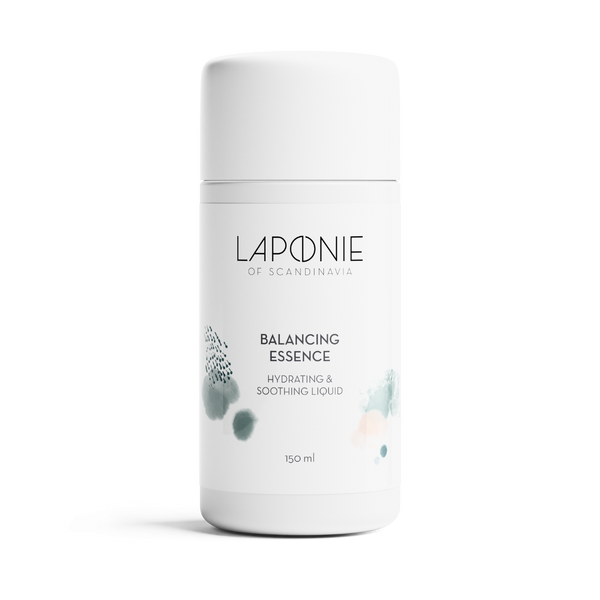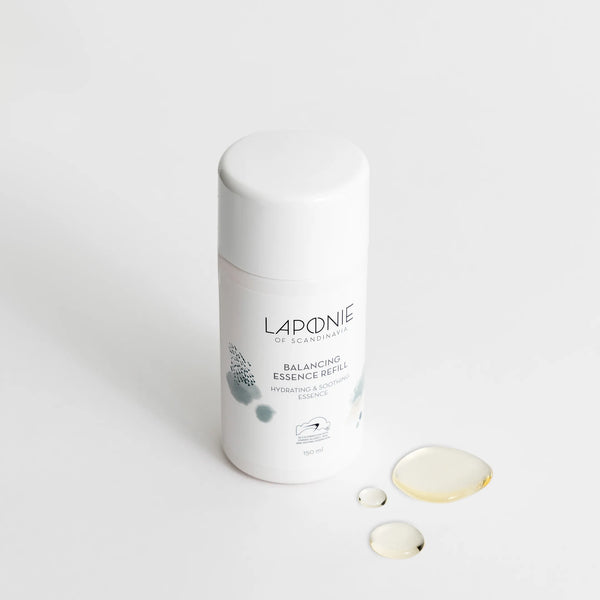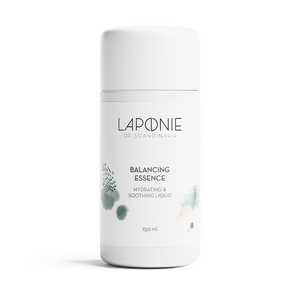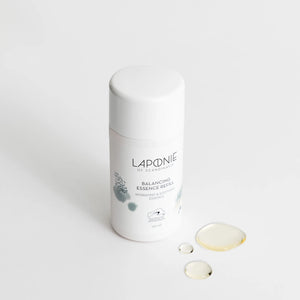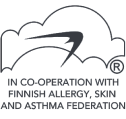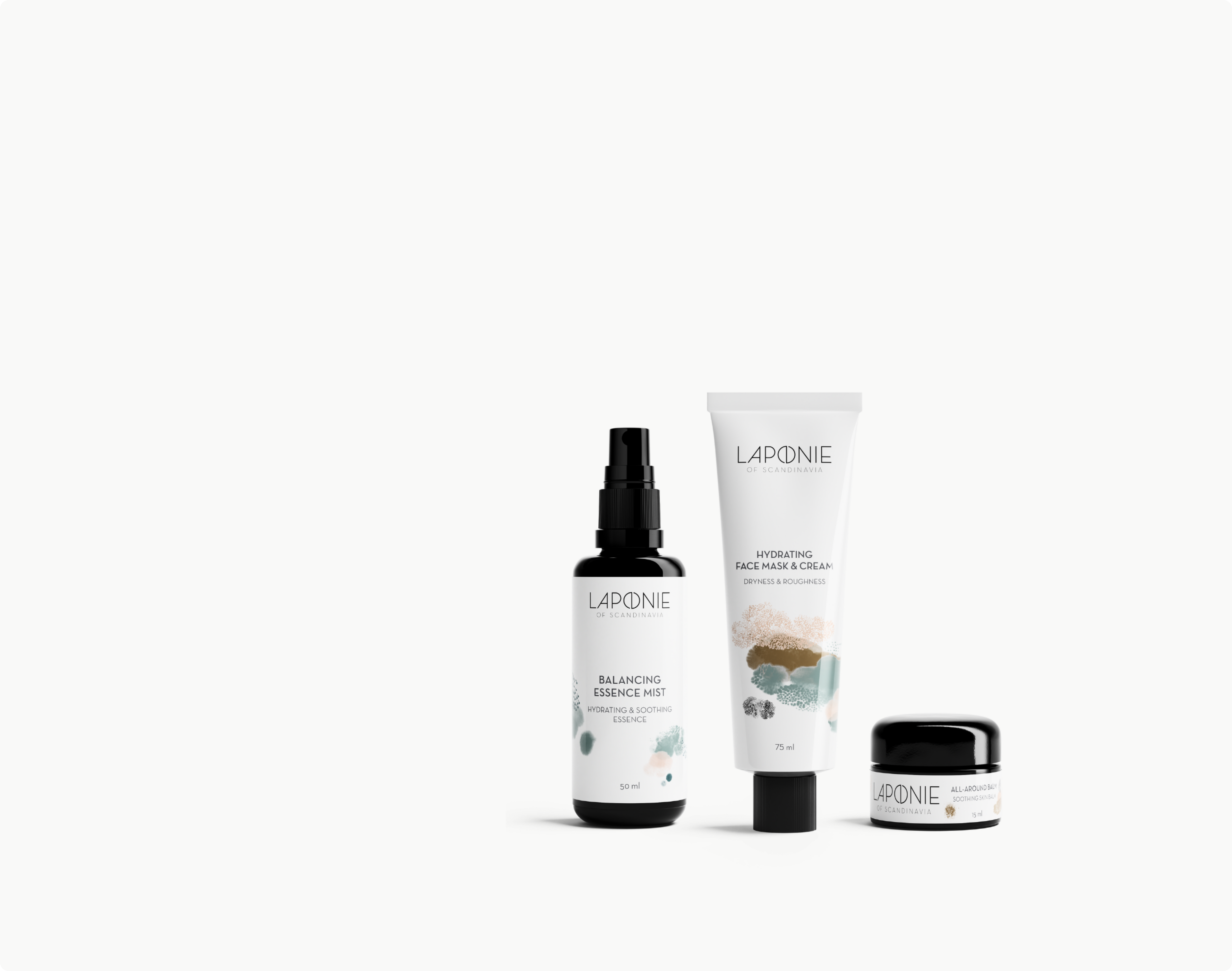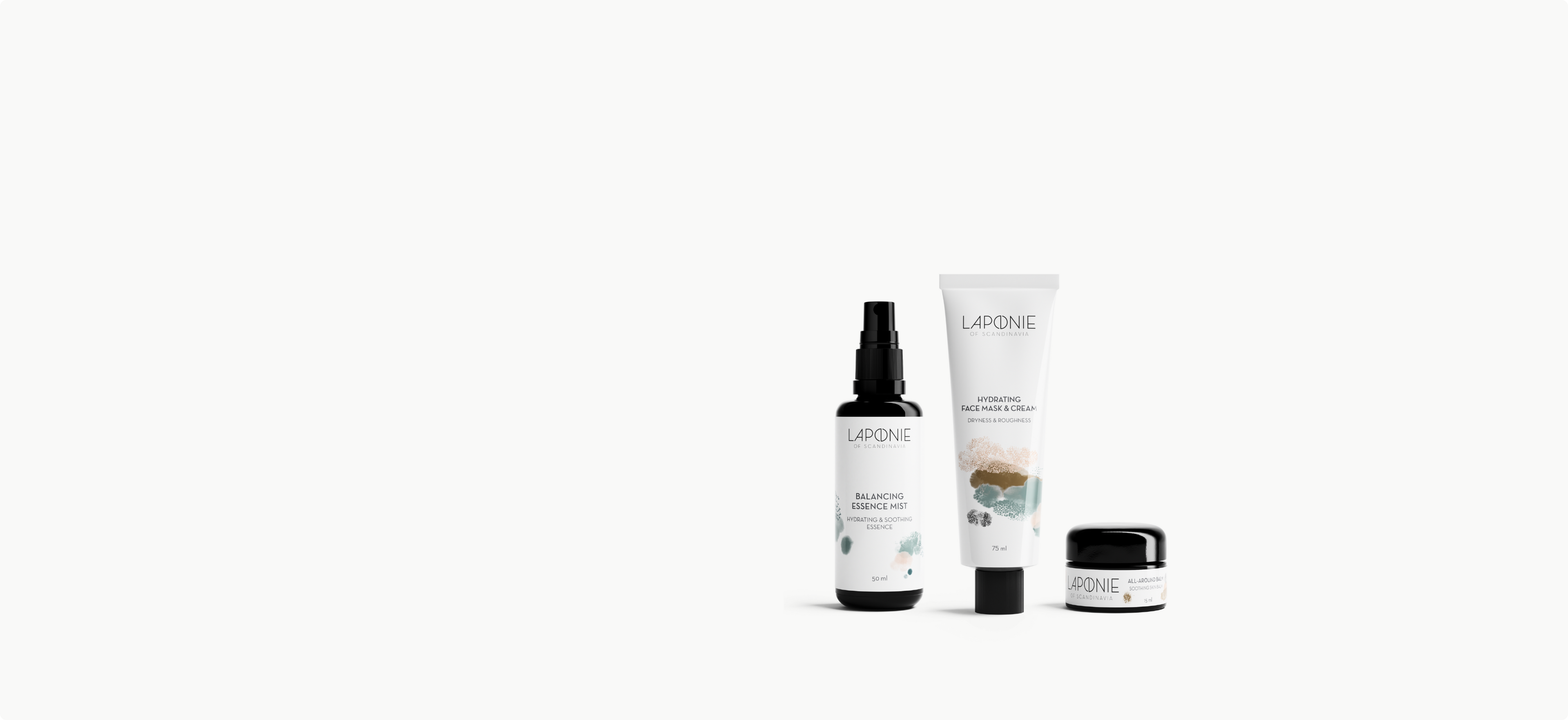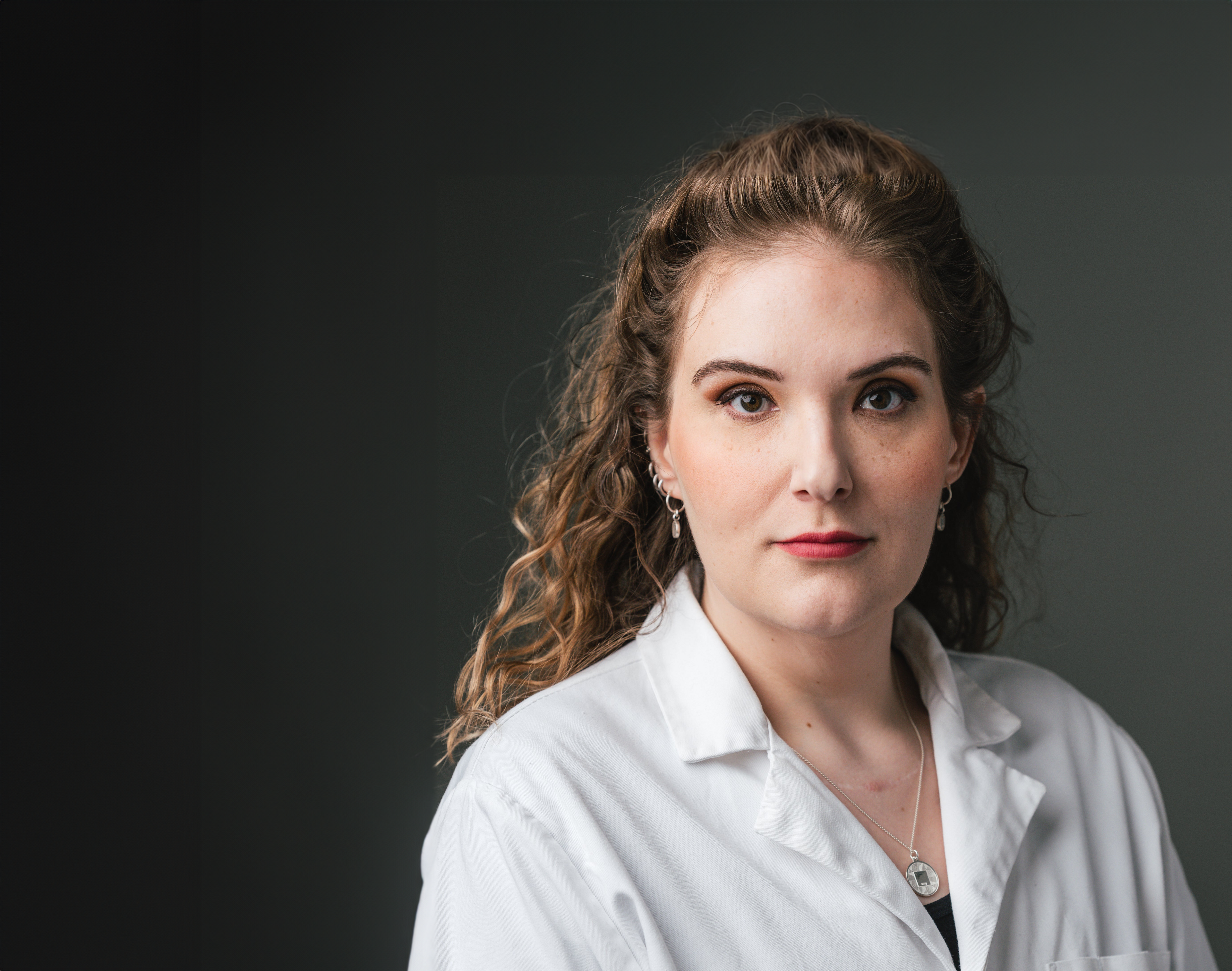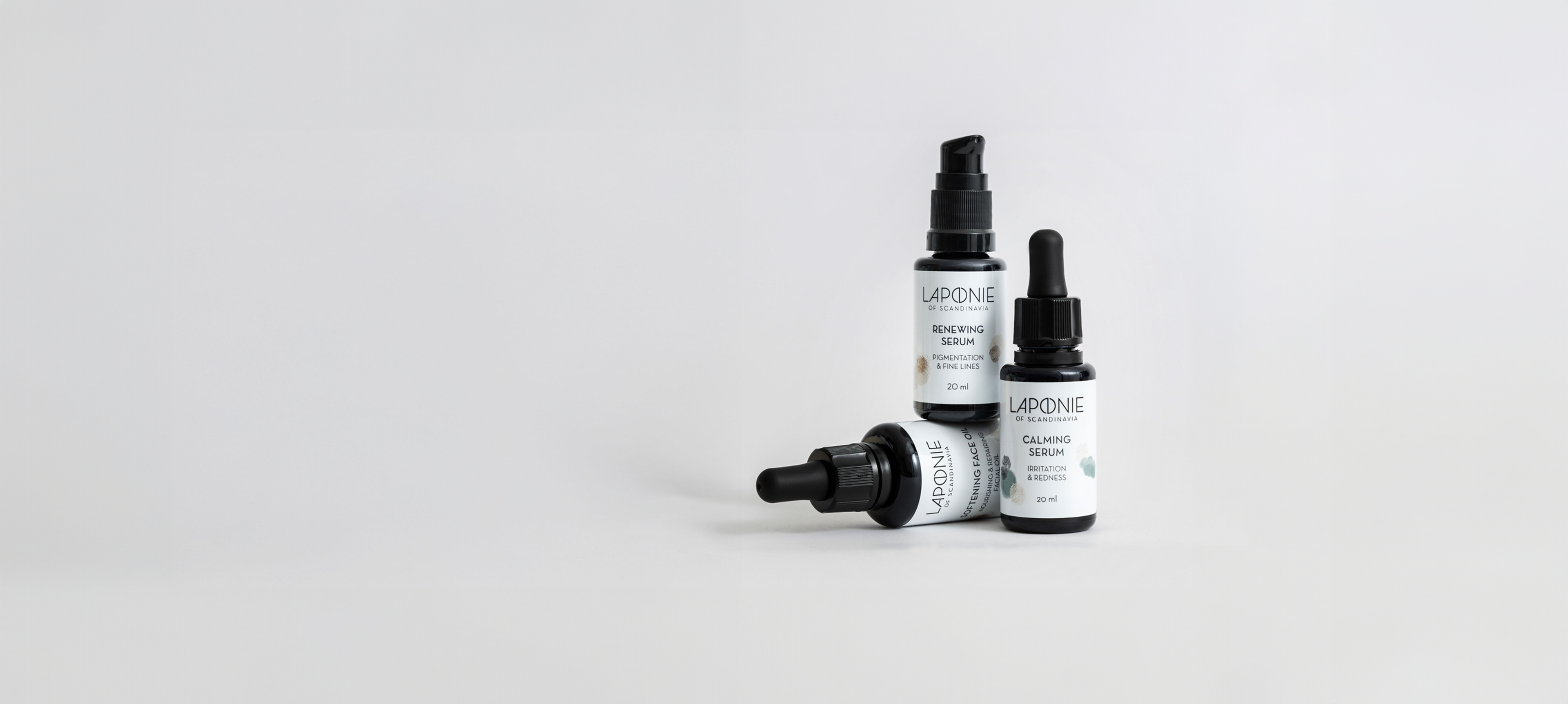
Balancing Essence Refill
- Use the Essence after cleansing and before other products to hydrate and balance skin. The Refill is a great choice when you want a hydrating product for layering.
- Skin type & concern: all types of sensitive & problem skin, especially sensitised, reactive and irritated skin. A cornerstone product for rosace and POD.
- Formulated for sensitive & problem skin, without added fragrance and alcohol. Allergy-labelled.
-
Free sample with all orders.
-
Delivery: Finland 1-4 business days & rest of EU 2-7 business days.
-
Free delivery: Finland orders over 38€ & rest of EU 58€.
-
Safe payments.
The Balancing Essence is a light, hydrating and soothing facial toner that leaves skin moisturised, soft and smooth. The Essence is made with classic, plant-based glycerin, multitasking, natural ectoin for longterm hydration, smoothing giant kelp extract and calming liquorice root.
Having trouble finding a face cream for very sensitive skin? Try pairing the Essence with our Softening Face Oil for emulsifier-free hydration and care - the combination of moisturising ingredients and oils will essentially give you the same effect as a face cream. This combo has become a true favourite among our customers dealing with sensitised and reactive skin, and also POD and rosacea.
Aqua, Ectoin, Glycerin, Sodium Levulinate, Potassium Sorbate, Dehydroacetic Acid, Macrocystis Pyrifera Extract, Dipotassium Glycyrrhizate, P-Anisic Acid
Aqua
Solvent. Water. The main vehicle for our water based products
Ectoin
Skin conditioning. Ectoin is a powerful, small, multi-tasking and natural stress-protection molecule, a so-called extremolyte. From a chemical point of view, it is a cyclic amino acid derivate. Extremolytes protect extremophilic microorganisms and plants from the extreme conditions of their habitats like salt lakes, hot springs, permanent ice or deserts. The properties of ectoin have been proven by various in-vivo studies: its benefits include long-term moisturisation, diminished skin roughness, skin barrier repair and anti-inflammatory and anti-irritant properties. We get ours from a lovely little company in Germany, where it is produced through biotechnological fermentation from a specific, non-GMO strain of the halophilic bacteria Halomonas elongata.
Glycerin
Humectant and skin protecting. Technically a sugar alcohol, glycerin is one of the oldest, most common and most versatile humectants used in cosmetics. It moisturises and protects the skin, accelerates skin barrier recovery and has antimicrobial properties, among other things. For our Cream we use vegetable, rapeseed-derived glycerin.
Sodium Levulinate
Skin conditioning and preservative. Sodium levulinate is the sodium salt of levulinic acid, which is an organic acid derived from in this case sugarcane.
Potassium Sorbate
Preservative. Potassium sorbate is widely used in a variety of foods and personal care products. It works by inhibiting the growth of molds, yeasts and bacteria to preserve the freshness and quality of foods, beverages, or cosmetic products. Potassium sorbate is the potassium salt of sorbic acid, which is naturally occurring in some berries, although virtually all of the world's production of sorbic acid, as well as potassium sorbate, is manufactured synthetically. Together with sodium levulinate, dehydroacetic acid and p-anisic acid it makes up the preservative system in our toner.
Dehydroacetic Acid
Preservative. Dehydroacetic acid is chemically synthesized through a multi-step reaction, starting with acetylene. Although it is not plant derived, it is approved by natural certification institutes such as COSMOS thanks to its mildness to the skin and body, as well as the absence of any alternative registered (approved) natural preservatives under the EU cosmetic regulation. Together with potassium sorbate, sodium levulinate and p-anisic acid it makes up the preservative system in our Essence.
Macrocystis Pyrifera Extract
Skin conditioning. Giant kelp. Macrocystis pyrifera is a species of kelp, and is one of the fastest growing organisms on Earth. It smooths and hydrates skin, with some studies indicating it has the ability to improve collagen synthesis and maintain skin elasticity. The kelp we use comes from South America.
Dipotassium Glycyrrhizate
Humectant and skin conditioning. Another skincare multi-tasker, dipotassium glycyrrhizate is the dipotassium salt of glycyrrhizic acid derived from liquorice root. It improves the appearance of dry or damaged skin by reducing flaking and restoring suppleness, and possesses anti-allergic and anti-inflammatory properties. Studies also suggest it inhibits the skin’s tyrosinase activity and melanin production, making it an agent against hyperpigmentation. And if that’s not enough, further studies have demonstrated that the salt aids in reducing the redness and irritation associated with rosacea, psoriasis and acne. This one is made in Japan.
P-Anisic Acid
Masking. Star anise derived, mild and skin friendly organic acid. We use it to boost our preservation system and also to regulate the pH of our toner. It also exhibits anti-inflammatory properties. Together with sodium levulinate, potassium sorbate and dehydroacetic acid it makes up the preservative system in our Essence.
Why it works for sensitive & problem skin
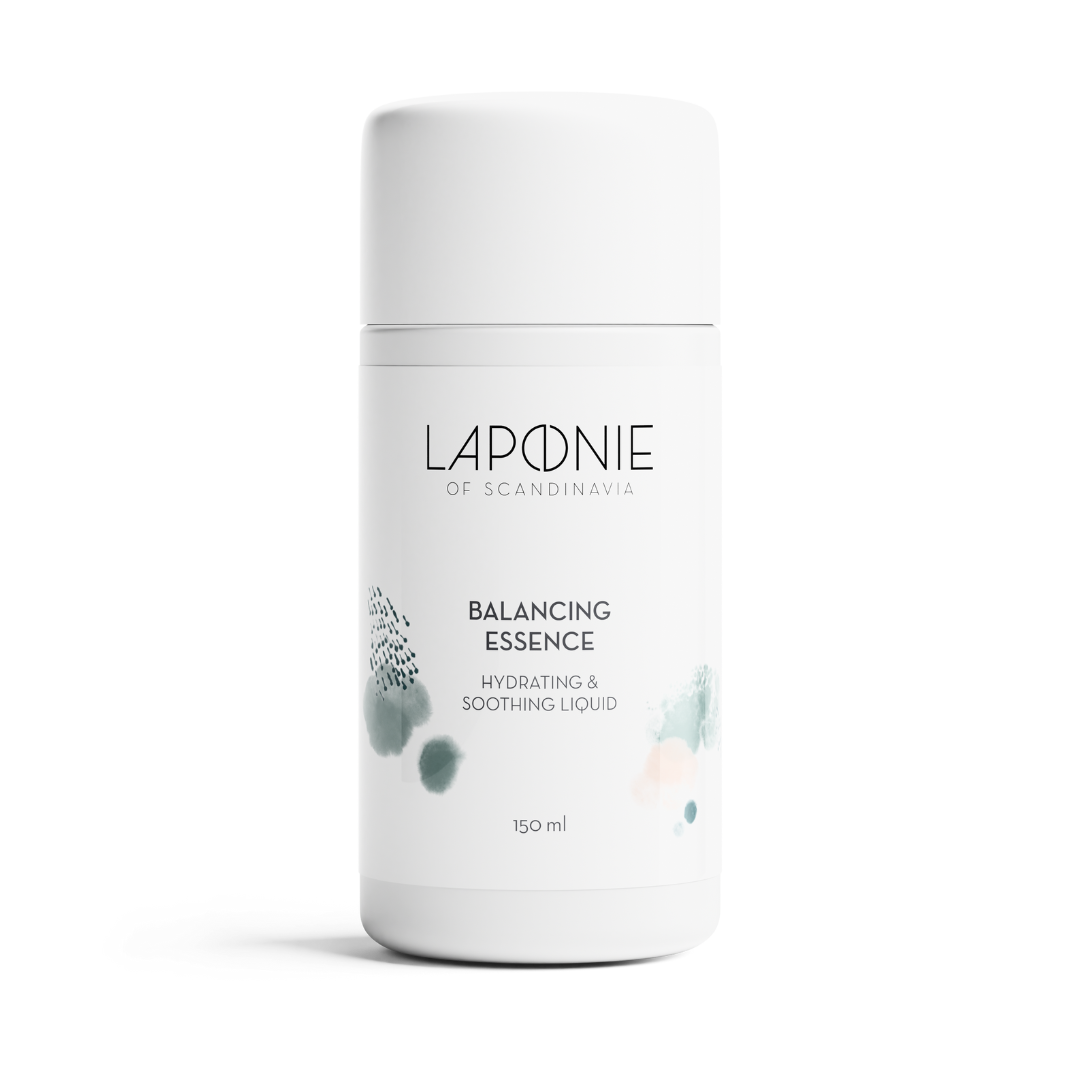
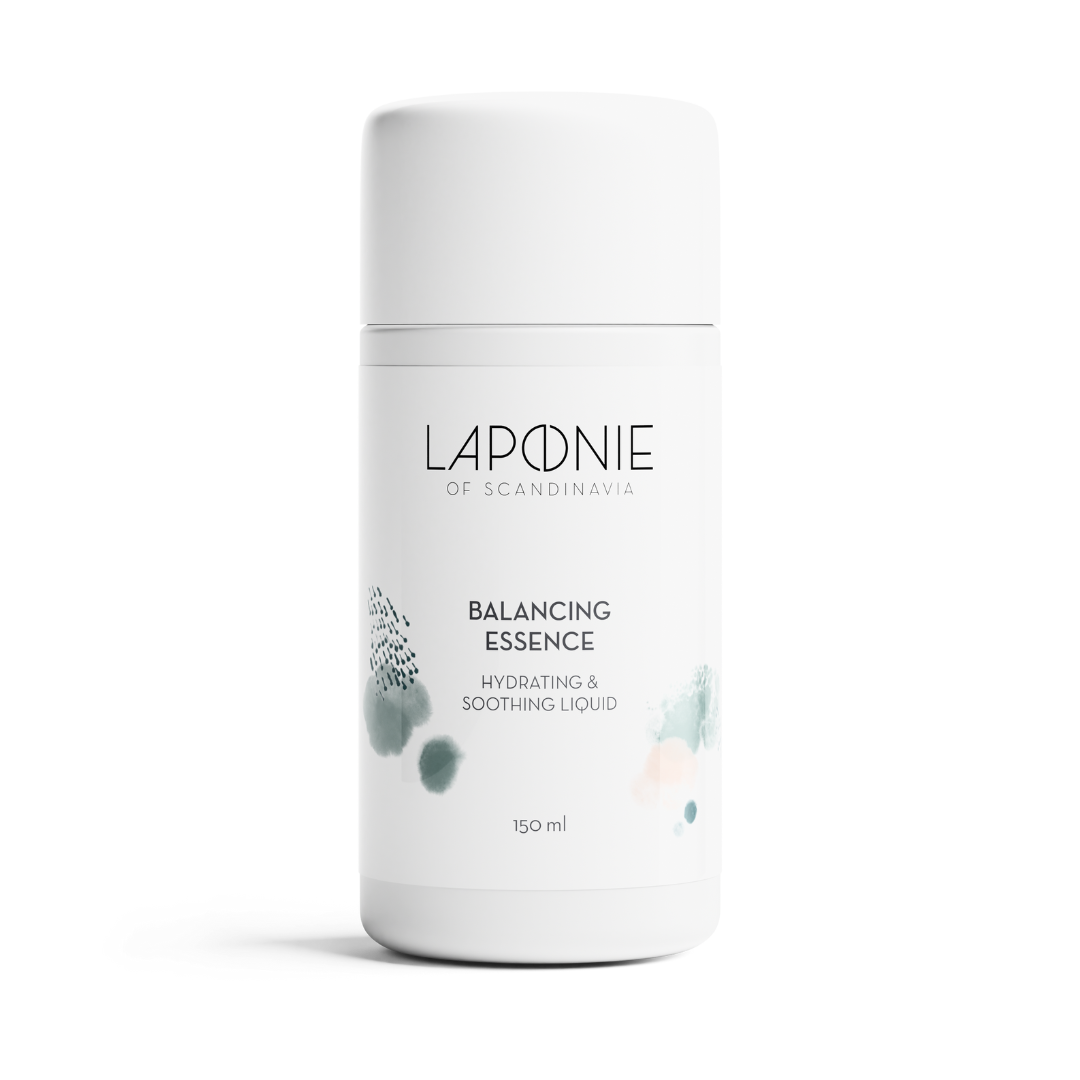
No added fragrance
No added fragrance or essential oils, floral waters or alcohol.
Formulated for sensitive & problem skin in our own lab
Our owners, CEO Kristina and cosmetic chemist Jaana, formulate all our products in our Helsinki lab, and test them on themselves - both have a long history of sensitive and problem skin.
Gentle & skin friendly preservatives
We've created a unique preservative system for the Balancing Essence, to minimise overlap with our other products, using gentle preservatives, primarily organic acids and their salt forms. Check out our ingredient section above to learn more.
Balanced pH for healthy skin
The Balancing Essence has a pH around 5.5 (healthy skin's own pH is slightly acidic, between 4.8 and 5.5) and will not upset or irritate skin.
Allergy-labelled
All our products carry the Finnish Allergy, Skin and Asthma Federation's independent Allergy-label.
A minimun of ingredients
The Balancing Essence contains only nine ingredients.. Formulated with multitasking ectoin for long-term hydration and skin barrier repair, liquorice root extract to treat inflammation and giant kelp to regenerate skin and and maintain skin elasticity. Check out our ingredient section above to learn more.



